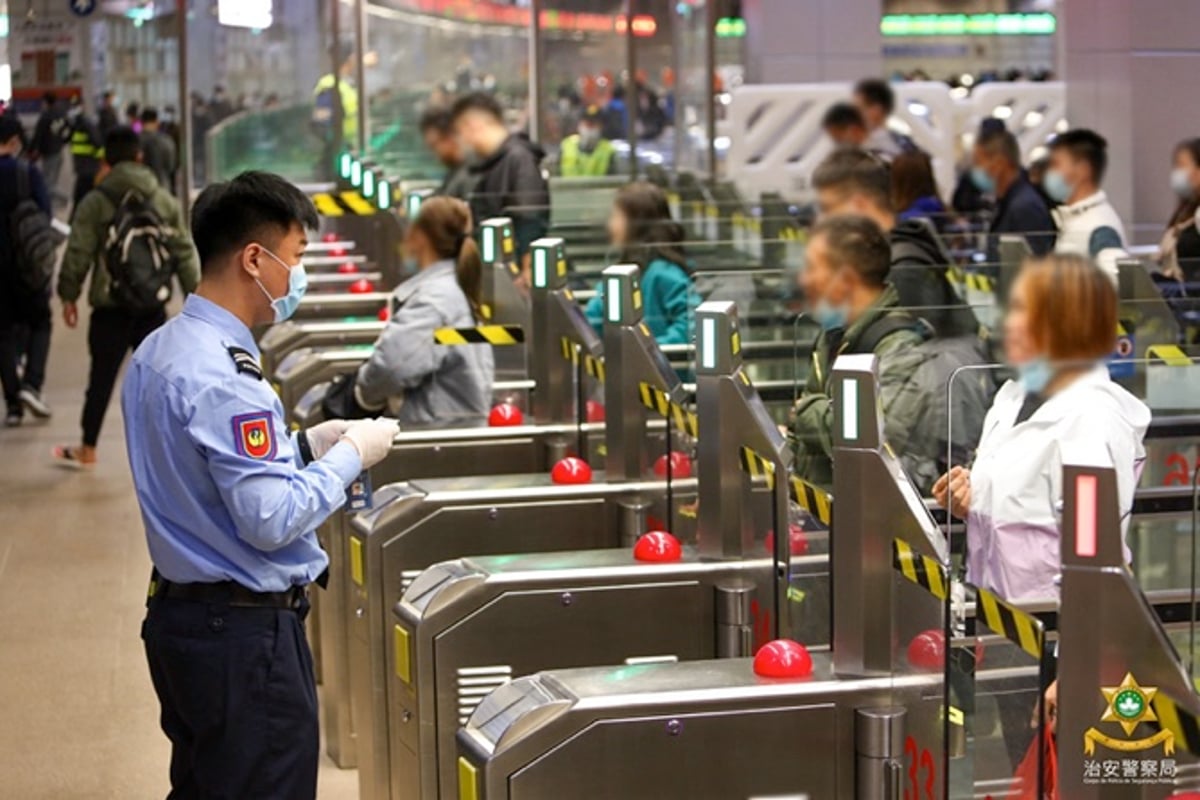Posted on: November 16, 2022, 10:28h.
Last updated on: November 16, 2022, 03:59h.
It’s déjà vu all over again in China as the People’s Republic is once again responding to new COVID-19 cases with draconian measures that will continue to limit normal life across the world’s most populated country.

A day after Macau Chief Executive Ho Iat Seng said the casino enclave would continue upholding Beijing’s “zero-COVID” response policy in the event of outbreaks and widespread respiratory virus contamination, the region shortened the time validity for test results.
As of this Wednesday afternoon in the Chinese Special Administrative Region (SAR), people traveling to Macau must present a negative nucleic acid COVID-19 test conducted within the past 24 hours. Previously, Macau border officials could accept negative tests completed within a 48-hour window.
Shares of the three US-traded Macau casino firms reported losses Wednesday due to the news. As of 11:15 am EST, Las Vegas Sands is trading 1.6% lower, MGM Resorts is down 2%, Wynn Resorts is 1.2% lower, and Melco Resorts is flat.
Groups Delayed
Macau’s six casino operators continue to seek open borders between the SAR and the mainland. China hinted at an opening in September when Beijing announced the forthcoming resumption of group travel.
The planned restart of group travel, originally scheduled to begin this month, is again being put on hold as China counts large numbers of new COVID-19 patients. This week, China’s Ministry of Culture and Tourism and National Immigration Administration said group tours would remain on hold until at least next Wednesday, November 23.
The announcement also applies to the processing of electronic visas and China’s all-important Individual Visit Scheme (IVS) program. Those who are allowed entry are required to undergo five days of government-monitored quarantine in a designated hotel facility followed by three subsequent days of self-isolated monitored by China’s Health Code mobile application.
China reported more than 20K new COVID-19 cases on Tuesday. At least 6,000 infections were detected in the Guangdong Province, which borders Macau and Hong Kong in the Pearl River Delta region.
Rebound Needed to Support Investments
Macau is reviewing applications from seven gaming firms interested in receiving a license to operate in the Chinese enclave for 10 years beginning in 2023. The concessions for the current six operators expire at the end of the year.
Macau’s local government has opted to keep its gaming industry in its current six-player arrangement. The half-dozen companies that have already invested tens of billions of dollars into their integrated resorts downtown and on the Cotai Strip are heavy favorites to receive the coveted permits. Genting Malaysia is the newcomer that faces the longest odds of being granted market entry.
The six that gain the 2023-2033 gaming licenses will need to jointly invest at a minimum of 100 billion patacas (US$12.4 billion) during the life of the concessions. That comes out to roughly $2 billion per licensee.
The bulk of that investment capital will presumably be used for non-gaming amenities. Under its next gaming law, Macau is encouraging its licensed casino operators to diversify their operations with more of a MICE (meetings, incentives, conferences, and exhibits) focus.
To warrant the construction of more large meeting rooms and exhibition floors in Macau, China will need to make it easier for mainlanders and foreigners to travel to the region without lengthy quarantines and cumbersome testing requirements.
